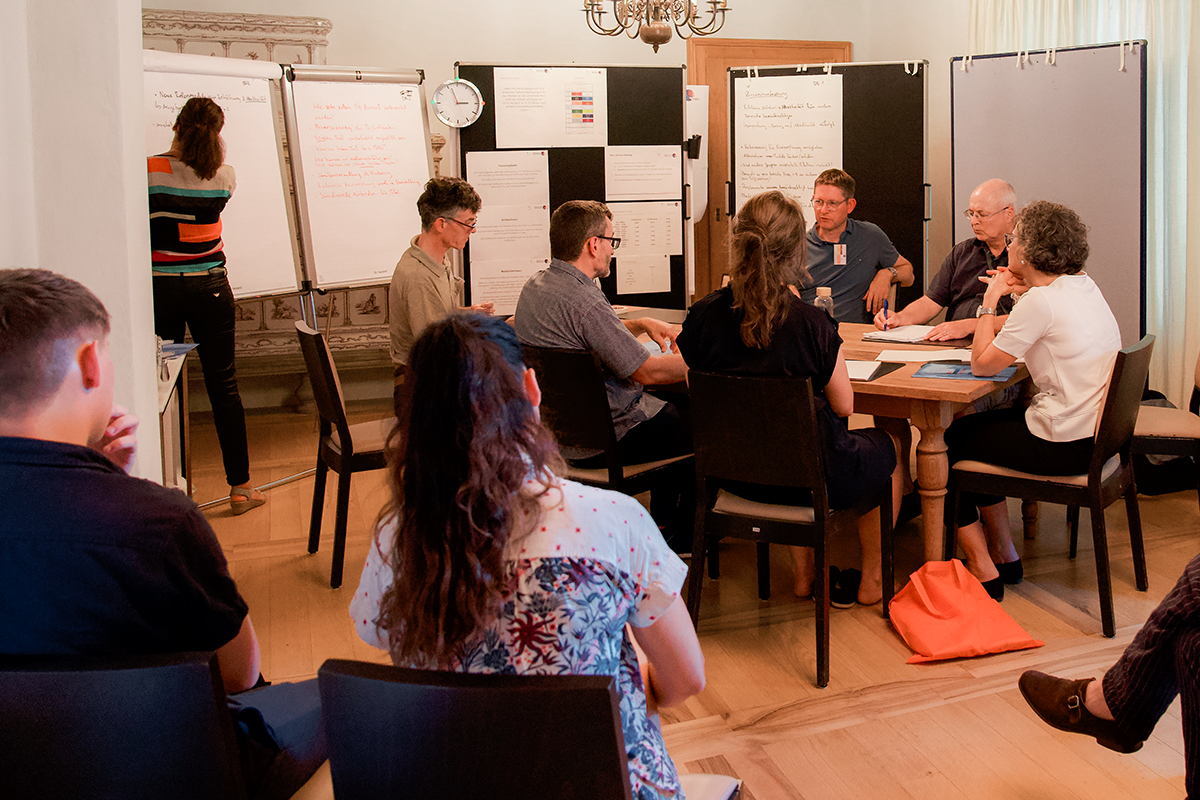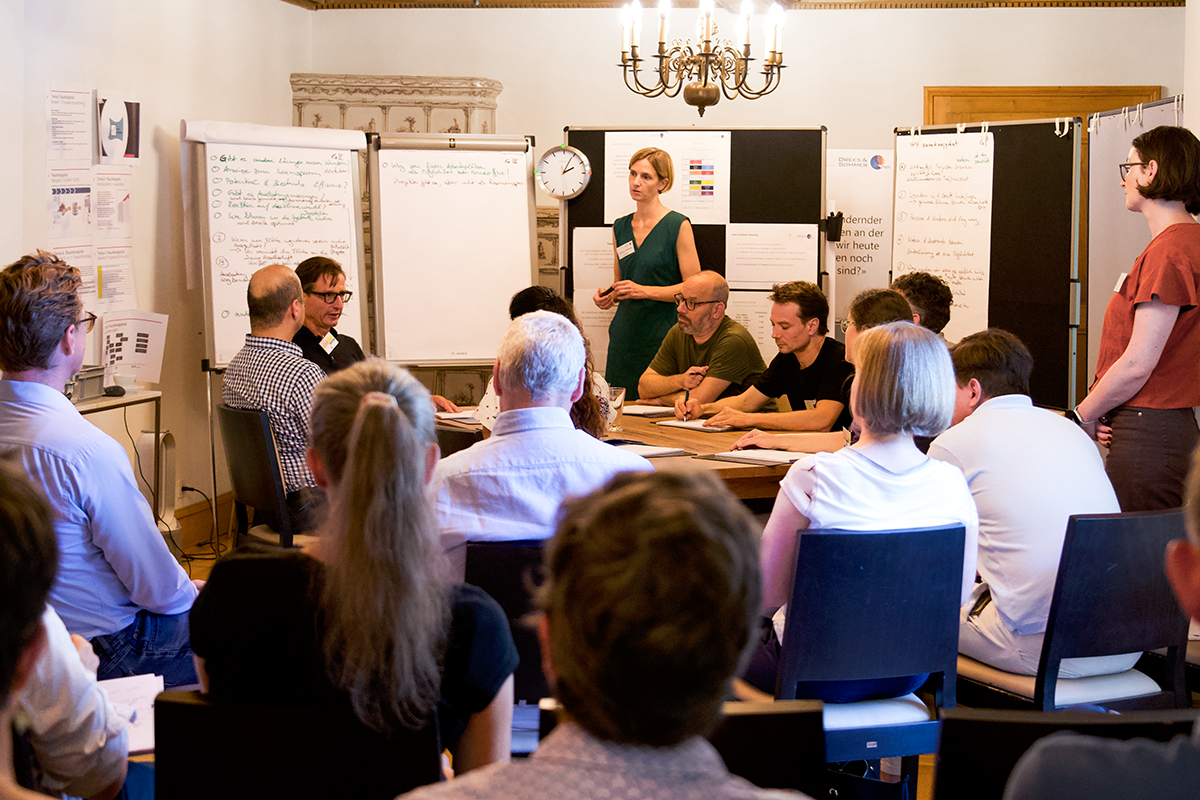Progress in the "Fit for Future" program: The University of Bern is on the path to change
More than 40 people from the faculties, the central division, the MVUB and the SUB discussed the interim status of the "Fit for Future" program in a one-day workshop.
The mood of optimism was palpable, the discussions open and lively. The biggest challenges facing the university(s) were discussed and opportunities for improvement were identified. "What do we need to do today to ensure that the University will still be competitive in 20 years?" was the initial question at the 3-day workshop last July. On August 22, representatives of the University of Bern met for the so-called 4th iteration to further discuss the initial question. The stated goal of this day was to examine whether the planned projects in the total of twelve fields of action are on track and where adjustments may be needed so that the university can actively address the challenges of the future.
One of the central results of the workshop was the realization that even more bridges need to be built between the various projects and fields of action, because the challenges can usually only be solved across project and organizational boundaries. In particular, the collaboration between faculties and the central department was named by the participants as a critical factor for the success of the program.
Details: What was discussed?
As mentioned at the beginning, the University of Bern wants to position itself for the future through numerous projects as part of the Fit for Future program and remain attractive as a teaching and research institution as well as an employer. This should be achieved, for example, by making the university's structures more uniform and thus simplifying administrative processes. At the same time, a balance must be found between the autonomy of the faculties and the guidelines set by the administration.
In the process, professionalization at the management level is also to be achieved. This should be strengthened, among other things, through the further development of the leadership culture and already begin with the recruitment process, in which leadership competencies are already taken into account.
Despite heterogeneity, the university should also guarantee uniform employment conditions and promote and retain its employees. In particular, career planning within the university for mid-level faculty must be strengthened.
All employees should be involved in the many upcoming changes. This applies in particular to the digital transformation, which is a challenge for many, but will achieve improvements and simplifications in many areas. But the new workplace concepts also require a new mindset from university employees. The group is certain that all this will, however, also offer many opportunities. However, the readiness for change must be promoted through adequate change management.
The members of the university should feel connected to the university and its values and feel that it offers equal opportunities to all and acts inclusively. In this context, exchange in general and especially between the stands and university units should be promoted. It is also particularly important here to bridge the gap between the central area and the faculties.
In teaching, there is a need for forums at a higher level for the discussion of fundamental questions, such as how teaching should be organized and what structures are needed for this. The necessary changes should be initiated to make teaching attractive for students and to promote interdisciplinarity. For researchers, central contact points and an innovative environment are needed to promote entrepreneurship. Through this and by making research results visible via visual global maps, the university achieves greater resonance with the public. At the same time, the local roots should not be forgotten, even if research often takes place on the international stage.
What's next?
Another exchange in the coming year will provide the opportunity to review the status of the projects again, to exchange further experiences and to make adjustments if necessary. The University of Bern remains focused on creating, step by step, a future-oriented educational institution that meets the demands of the times.


